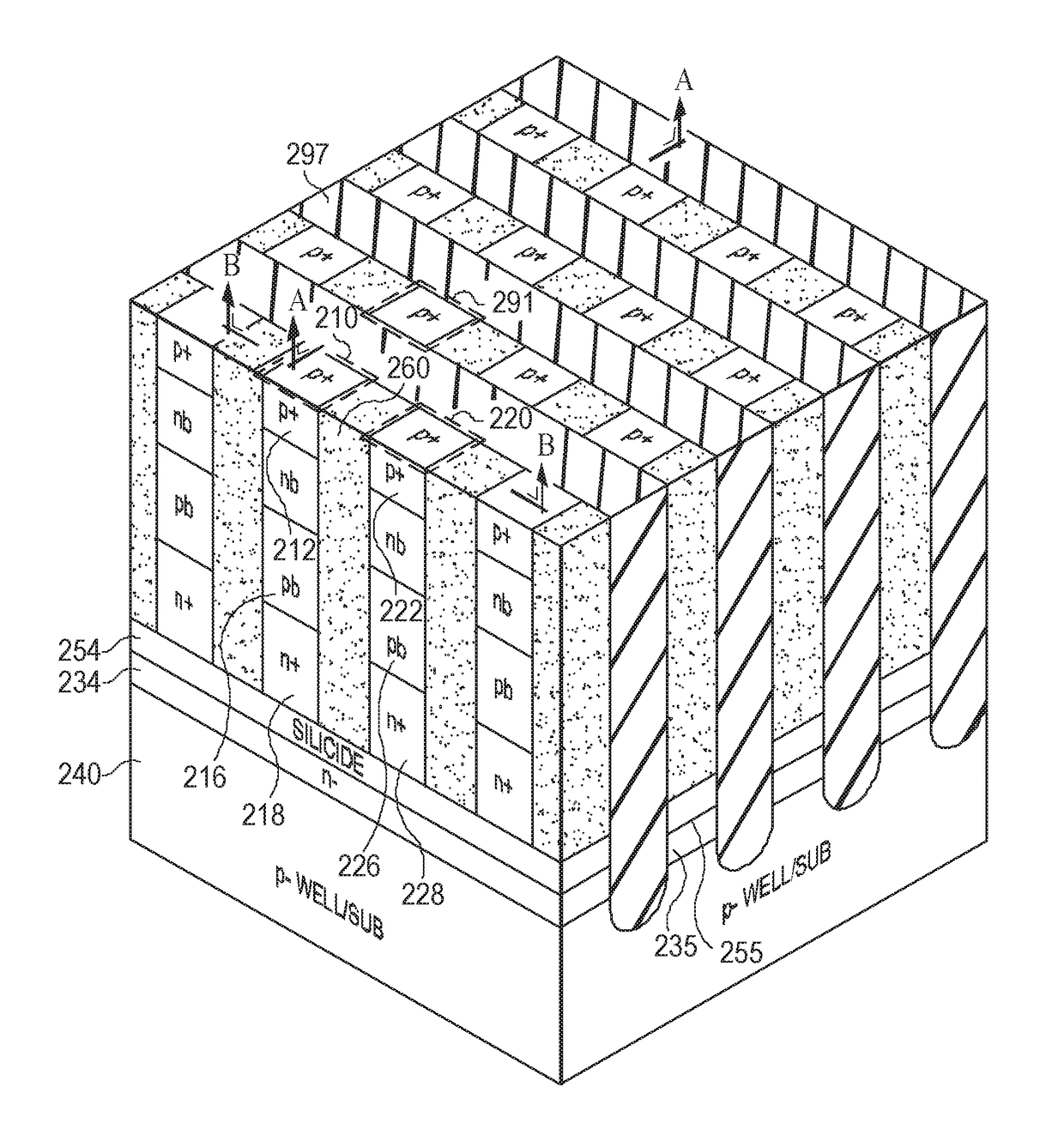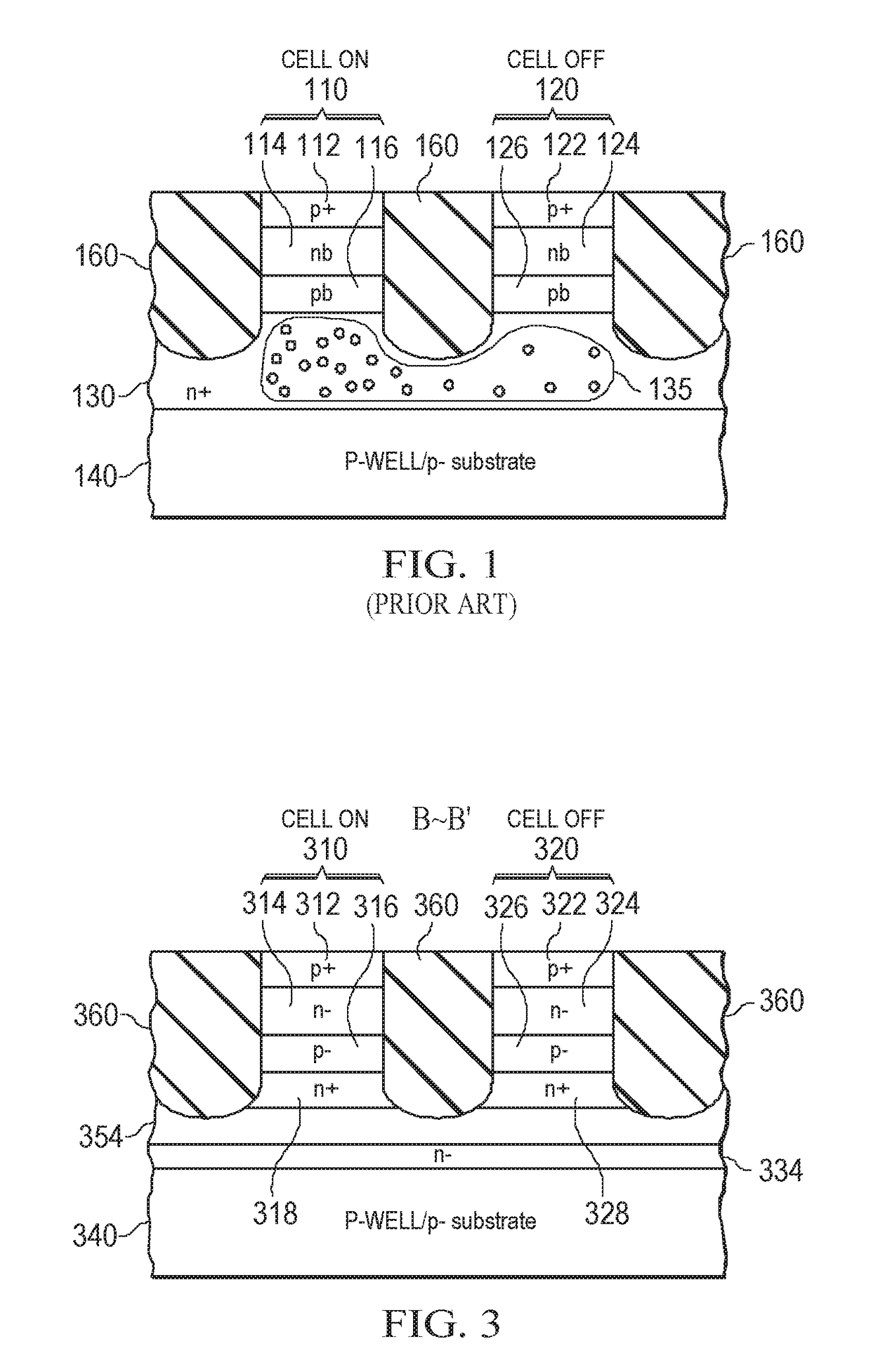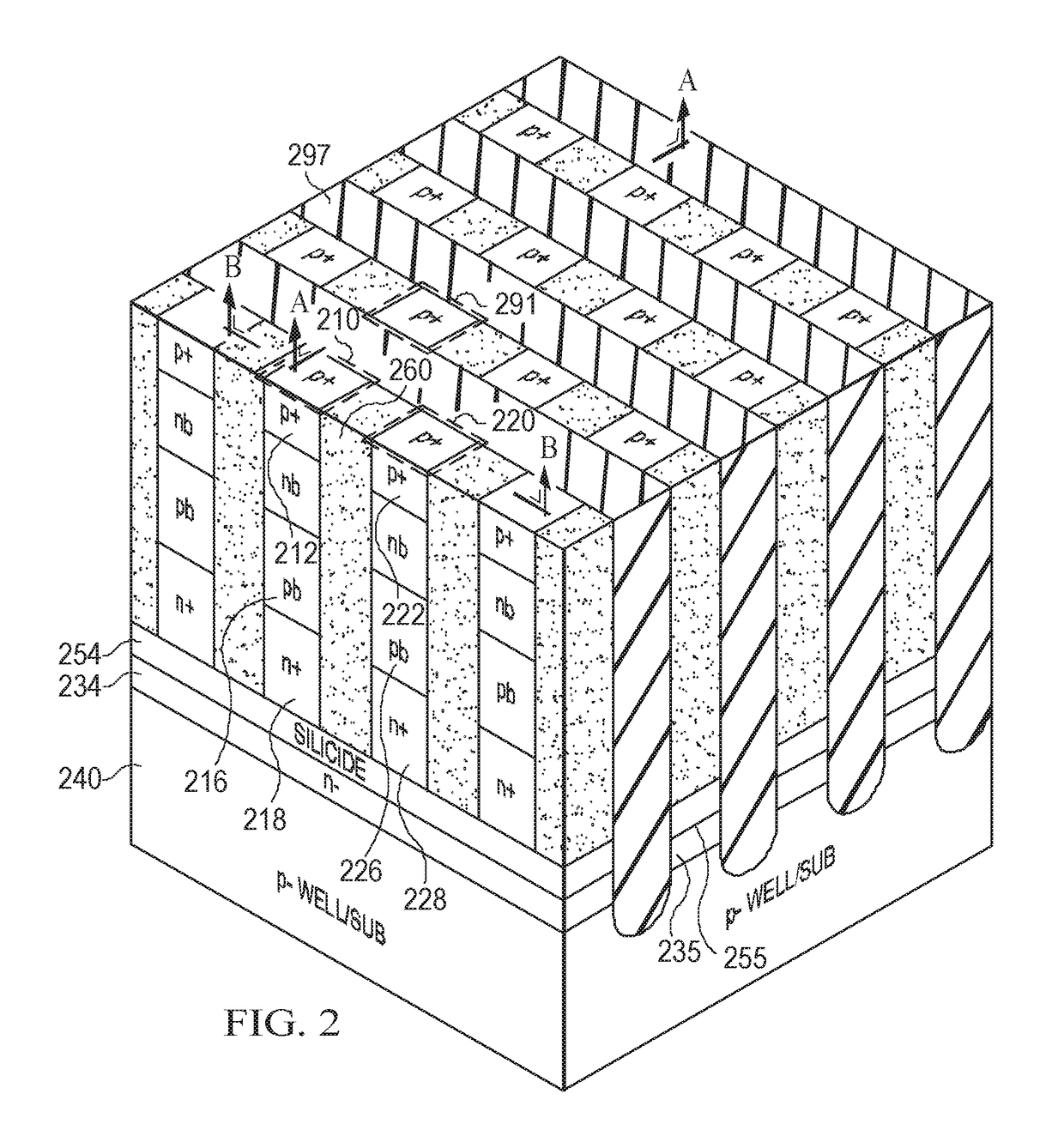Methods and systems for reducing electrical disturb effects between thyristor memory cells using heterostructured cathodes
a heterostructured cathode and memory cell technology, applied in the field of information storage semiconductor devices, can solve the problems of degraded device performance and yield, data retention issues, and the inability of technology to solve data retention issues, especially at scaled dimensions, and achieve the effect of reducing electrical disturb effects
- Summary
- Abstract
- Description
- Claims
- Application Information
AI Technical Summary
Benefits of technology
Problems solved by technology
Method used
Image
Examples
Embodiment Construction
[0048]Vertical thyristors arranged in cross-point arrays offer a promising solution to the challenges described in the background of the disclosure. Advantages of thyristors include the ability to precisely tune operating characteristics (e.g., switching speed, static power consumption, dynamic power consumption, etc.) by tuning the geometry and composition of component layers of each thyristor cell. Vertical thyristors may be arranged as an array of minimum 4 F2 cells, thereby minimizing cell area and reducing fabrication cost. Vertical thyristors may also be arranged in a stacked configuration to further increase the density of memory cells in a cross-point array.
[0049]Vertical thyristors may be arranged in a cross-point array of cells electrically isolated, for example, by trench isolation. As the isolation trenches in thyristor memories become narrower as the thyristor memories are scaled to smaller dimensions, minority carriers from ON cells can diffuse to neighboring OFF cells...
PUM
 Login to View More
Login to View More Abstract
Description
Claims
Application Information
 Login to View More
Login to View More - R&D
- Intellectual Property
- Life Sciences
- Materials
- Tech Scout
- Unparalleled Data Quality
- Higher Quality Content
- 60% Fewer Hallucinations
Browse by: Latest US Patents, China's latest patents, Technical Efficacy Thesaurus, Application Domain, Technology Topic, Popular Technical Reports.
© 2025 PatSnap. All rights reserved.Legal|Privacy policy|Modern Slavery Act Transparency Statement|Sitemap|About US| Contact US: help@patsnap.com



